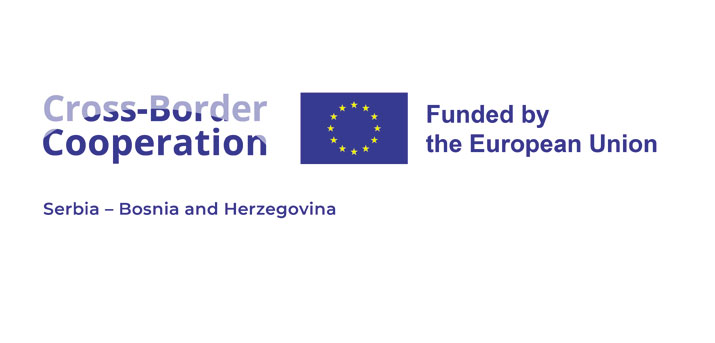A training session for members of local mobile teams, comprised of volunteers from Red Cross organizations in the Srem region and the Red Cross Federation of Bosnia and Herzegovina, was held in Letenci. The training was conducted as part of the “Healthy Aging in the Cross-Border Area – HEAL” project.
One of the main objectives is the development of new standardized health preventive services for elderly citizens in rural areas. Additionally, it aims to activate local mobile teams to provide these services and conduct public health education campaigns, similar to the training we attended.
The Letenci training gathered approximately 30 participants who had the opportunity to learn about a set of measures and skills to assist elderly residents in cross-border areas. This training session was the first of four planned in the initial series of trainings.
It comprised a theoretical component, including learning about the definition and concept of healthy aging, proper communication with the elderly, dementia, heart and lung diseases, diabetes, and a practical component where participants could learn about the proper use of glucometers, measuring blood pressure, pulse, cholesterol levels, and providing first aid for bleeding, fractures, and other conditions.
At the end of the training, participants practiced and presented the knowledge they had acquired in the aforementioned areas.
This project reflects serious concern for the growing number of elderly citizens in both countries. An increasing number of elderly individuals require daily attention and care, and the HEAL project aims to provide them with adequate healthcare by forming mobile teams that will visit rural areas and offer the necessary assistance.
According to the World Health Organization, it is estimated that the global population of individuals aged over 60 will increase from 12% to 22% of the total world population between 2015 and 2050. Given this dramatic rise in the elderly population, it is essential to coordinate and integrate the healthcare services provided by healthcare systems in the region.
The HEAL project will be implemented in 12 municipalities and cantons in the cross-border region, with seven municipalities belonging to the Republic of Serbia (Irig, Šid, Ruma, Inđija, Sremska Mitrovica, Pećinci, Stara Pazova), and five cantons belonging to the Federation of Bosnia and Herzegovina (Tuzla, Posavina, Central Bosnia, Zenica-Doboj, and Sarajevo Canton).
“Our goal is to introduce young people to the elderly and their way of thinking, so that when they return to their communities, they can respond properly in specific situations,” said Jelena Milić, a specialist at the Red Cross of Vojvodina.
According to Danijel Tučić, the Secretary-General of the Federation of Bosnia and Herzegovina, the objective of this project is to strengthen the social and economic situation for the elderly and vulnerable individuals in rural areas.
“We want to empower the elderly to receive proper care and useful advice on healthy aging,” emphasized Dejan Rešetar, PR of the HEAL project.
The HEAL project represents a beacon of hope for the elderly citizens of these regions, promising them a better and healthier future as we enter an era where an increasing number of people will enjoy their golden years of life.







